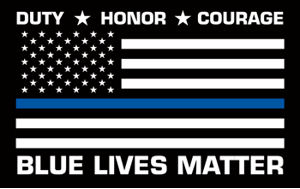The high court was unanimous in holding that tribal officers can temporarily detain and search non-Natives traveling on public roads running through a reservation if there is reasonable suspicion a state or federal crime has been committed.
Jack Rogers – Courthouse News Service
WASHINGTON (CN) — Confronting complicated jurisdictional rules, the U.S. Supreme Court ruled Tuesday that tribal law enforcement can detain and search nonmembers of the tribe who are traveling on a public right-of-way through the reservation based on reasonable suspicion.
The decision reverses the Ninth Circuit, which held that tribal police officers can detain and search non-Indians only if there is an “obvious” or “apparent” violation of the law – as opposed to the reasonable-suspicion standard that non-tribal officers must satisfy to conduct a search.
The case originated when tribal police officer James Saylor pulled over to talk to the driver of a pickup truck idling on the shoulder of the highway on Crow Reservation in southern Montana. Saylor questioned the driver, Joshua James Cooley, a non-Native, and ended up finding three firearms and methamphetamine.
Cooley was charged but moved to suppress the evidence on the grounds that Saylor was acting outside the scope of his jurisdiction. The trial court agreed, and the Ninth Circuit affirmed, saying that the officer should have confirmed whether Cooley was an Indian or non-Indian before proceeding.
During oral arguments at the Supreme Court in March, Cooley’s attorney Eric Henkel said that reasonable suspicion is not enough to detain a non-Native on tribal land unless there is an imminent threat of violence.
“The government claims this sweeping police authority over all U.S. citizens is consistent with overriding federal interests, even though tribes exercise that authority outside the constitution, free of political accountability and cloaked with immunity from civil liability,” Henkel, of the firm Christian, Samson & Baskett, told the justices.

